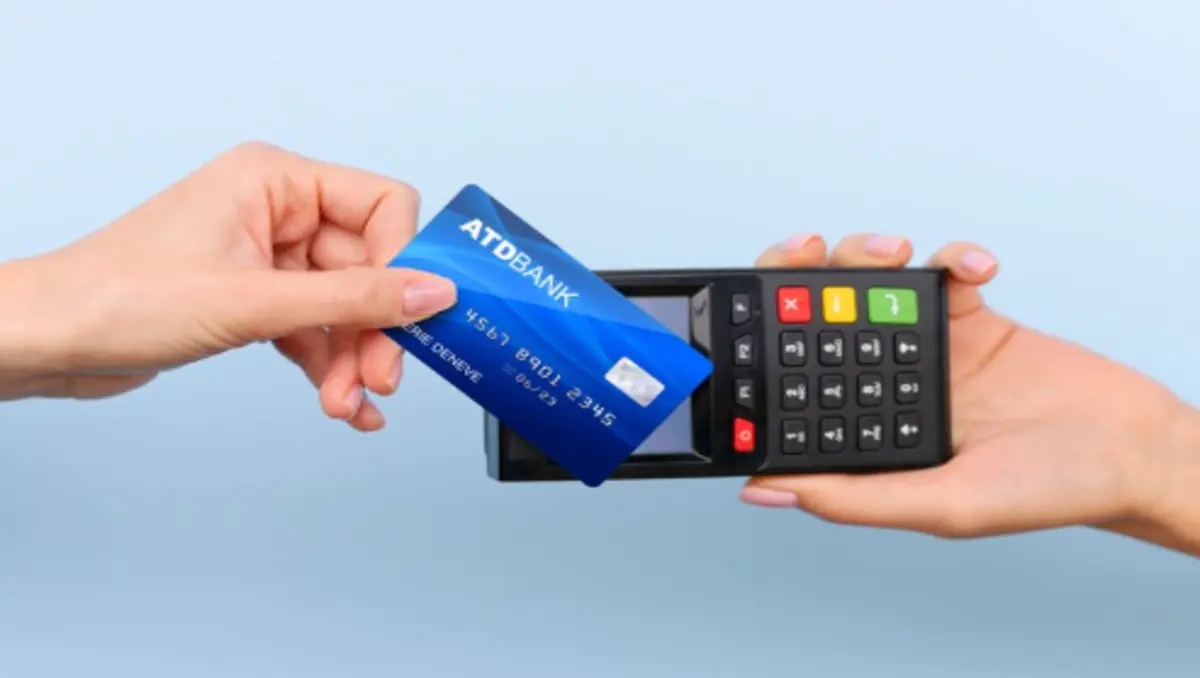In today’s digital world, credit cards are an essential financial tool for managing everyday expenses, building credit, and even earning rewards. Whether you’re a student trying to build your credit, a professional managing monthly bills, or someone who wants to enjoy perks like cashback or travel rewards, understanding credit cards is crucial.
However, many people are still unfamiliar with how credit cards work, their benefits, and how to avoid the potential pitfalls. In this blog post, we’ll explore what credit cards are, how they work, the different types of credit cards, and tips for using them wisely.
What is a Credit Card?
A credit card is a payment card that allows you to borrow money up to a certain limit to make purchases or withdraw cash. When you use a credit card, you’re essentially borrowing money from the credit card issuer (like a bank or financial institution) with the agreement to pay it back later. This borrowed money is usually repaid with interest, and failing to pay your balance on time can result in late fees and damage to your credit score.
Unlike debit cards, which draw directly from your checking account, credit cards allow you to “charge” your purchases and pay them off over time, typically with a grace period.
How Does a Credit Card Work?
When you use a credit card, you’re essentially borrowing money from the card issuer to pay for goods or services. The process of using a credit card involves several steps:
- Getting Approved: You need to apply for a credit card. Your application will be reviewed based on factors like your credit score, income, and payment history. Once approved, you’ll receive a card with a credit limit.
- Making Purchases: Once you have your card, you can use it to make purchases anywhere credit cards are accepted. The amount you spend is added to your balance.
- Monthly Statements: At the end of each billing cycle (usually monthly), your credit card issuer will send you a statement showing how much you owe. It will also detail the minimum payment required.
- Repaying Your Balance: You can choose to pay the full amount you owe, or you can pay the minimum payment. If you don’t pay the full balance, interest will be added to the remaining amount.
- Interest and Fees: If you carry a balance from one month to the next, the credit card issuer will charge you interest. Additionally, there may be annual fees, late payment fees, and other charges.

Types of Credit Cards
There are various types of credit cards, each designed to meet different needs. Here are some of the most common types:
- Standard Credit Cards: These are the basic type of credit card, with no special features like rewards or bonuses. They’re ideal for people who just need to build or maintain credit.
- Rewards Credit Cards: These cards offer perks like cashback, points, or miles for every dollar spent. They’re a great option for those who want to earn rewards on their purchases. You can redeem these rewards for travel, merchandise, or statement credits.
- Cashback Credit Cards: These cards offer a percentage of your spending back in cash. Typically, you earn cashback for everyday purchases like groceries, gas, and dining out.
- Travel Credit Cards: Travel credit cards earn you travel-related rewards, such as frequent flyer miles or hotel points. These cards often come with travel-related benefits, such as airport lounge access, travel insurance, and more.
- Balance Transfer Credit Cards: If you have existing credit card debt, these cards allow you to transfer that balance to a card with a lower interest rate, often with a promotional 0% APR for a certain period.
- Secured Credit Cards: Secured cards require a deposit to open, which acts as collateral. These cards are often used by individuals with limited or poor credit history to build or rebuild their credit score.
Benefits of Using a Credit Card
Credit cards come with a range of benefits that can make them a valuable financial tool when used responsibly. Some of the key advantages include:
- Building Credit: Using a credit card regularly and paying your balance on time can help you build a positive credit history, which is important for securing loans, renting apartments, and more.
- Convenience: Credit cards are accepted almost everywhere, making them a convenient way to pay for purchases both in-store and online.
- Rewards: Many credit cards offer rewards programs, such as cashback, travel points, or discounts on purchases. These rewards can help you save money or earn benefits for your everyday spending.
- Security: Credit cards come with fraud protection. If your card is lost or stolen, you’re typically not responsible for unauthorized charges. Plus, using a credit card instead of carrying cash can reduce the risk of loss or theft.
- Emergency Backup: Having a credit card can serve as a backup source of funds during an emergency, such as unexpected medical expenses or car repairs.
How to Use a Credit Card Responsibly
While credit cards offer many benefits, they also come with risks if not used properly. Here are some tips to ensure that you use your credit card responsibly:
- Pay Your Balance in Full: Whenever possible, try to pay off your credit card balance in full every month to avoid paying interest.
- Make Payments on Time: Always make your payments on time to avoid late fees and damage to your credit score.
- Avoid Spending Beyond Your Means: It’s easy to overspend with a credit card, but remember that the money you borrow will need to be repaid later. Only charge what you can afford to pay back.
- Monitor Your Spending: Regularly check your credit card statements and account activity to ensure that you’re not spending more than you intended. Many card issuers provide mobile apps to help track spending.
- Keep Your Credit Utilization Low: Credit utilization refers to the percentage of your available credit that you’re using. It’s best to keep your credit utilization below 30% to maintain a good credit score.
- Understand Your Credit Card Terms: Be sure to read the terms and conditions of your credit card, including the interest rates, fees, and rewards program. Knowing how your card works will help you avoid surprises.
Common Credit Card Mistakes to Avoid
While credit cards can be helpful, they can also lead to financial trouble if used incorrectly. Here are some common mistakes to avoid:
- Paying Only the Minimum Payment: Paying only the minimum payment will result in interest charges, making it harder to pay off your balance. Try to pay as much as possible above the minimum.
- Missing Payments: Missing payments can lead to late fees, higher interest rates, and a negative impact on your credit score.
- Maxing Out Your Credit Limit: Spending up to your credit limit can hurt your credit score. Try to keep your balance well below your credit limit for better financial health.
- Applying for Too Many Cards: Applying for multiple credit cards in a short period can lower your credit score. Only apply for new credit when necessary.
- Ignoring Fees: Some credit cards come with hidden fees, such as annual fees, foreign transaction fees, or cash advance fees. Be sure to read the fine print before choosing a card.
How to Choose the Right Credit Card for You
Choosing the right credit card depends on your financial goals, spending habits, and credit history. Here are some factors to consider:
- Your Credit Score: If you have good or excellent credit, you’ll likely qualify for cards with better rewards and lower interest rates. If you have poor or limited credit, you might need to start with a secured or standard card.
- Rewards and Benefits: Decide whether you want cashback, travel rewards, or points for your everyday spending. Some cards also offer additional perks like travel insurance or extended warranties.
- Fees: Compare the fees associated with different cards, such as annual fees, foreign transaction fees, and balance transfer fees. Look for a card that offers good value for your needs.
- Interest Rates: If you plan on carrying a balance, look for a credit card with a low interest rate. Avoid cards with high APRs, as they can result in significant interest charges.

Credit cards are a powerful financial tool when used wisely. They can help you manage your finances, build your credit, and earn rewards. However, they also come with risks, such as debt accumulation and damage to your credit score if not managed properly.
read more
By understanding how credit cards work, choosing the right card for your needs, and using them responsibly, you can take full advantage of their benefits without falling into financial trouble. Always pay your bills on time, avoid unnecessary debt, and monitor your spending to make the most of your credit card experience.
faq’s
1. What is a credit card?
A credit card is a payment tool that allows you to borrow money from a bank or financial institution to make purchases, up to a certain limit. You are required to pay back the borrowed amount, usually with interest if not paid in full by the due date.
2. How do credit cards work?
When you make a purchase using a credit card, the amount is borrowed from the card issuer, and you are expected to repay it within a set time frame. You can either pay the full balance or make a minimum payment, with interest being charged on any remaining balance.
3. What is a credit limit?
A credit limit is the maximum amount you are allowed to borrow on your credit card. This limit is determined by the card issuer based on factors such as your credit history, income, and creditworthiness.
4. What are credit card interest rates (APR)?
APR (Annual Percentage Rate) is the interest rate charged on the outstanding balance on your credit card. If you don’t pay your full balance by the due date, the remaining balance will accrue interest at the specified APR.
5. What are credit card rewards?
Credit card rewards are benefits that you earn based on your spending. These can include cashback, travel points, or other perks, depending on the type of card you have. Rewards are typically earned for every dollar spent, with certain categories (like groceries or dining) offering higher rates of return.
6. What is a secured credit card?
A secured credit card requires a deposit that acts as collateral. It’s typically used by people with limited or poor credit history to build or rebuild their credit. The deposit usually serves as your credit limit.
7. What happens if I miss a payment?
Missing a payment can result in late fees, higher interest rates, and a negative impact on your credit score. It’s important to make at least the minimum payment on time to avoid these penalties.
8. What is a credit score and how does it relate to credit cards?
A credit score is a numerical representation of your creditworthiness. It ranges from 300 to 850, with higher scores indicating better credit health. Your credit score can affect your ability to get approved for a credit card, the credit limit you’re offered, and the interest rates you’ll pay.
9. Can I use my credit card internationally?
Yes, most credit cards are accepted internationally. However, be mindful of foreign transaction fees, which can be applied by some card issuers. It’s best to notify your card issuer before traveling to avoid issues with card usage.
10. How can I improve my credit score with a credit card?
You can improve your credit score by using your credit card responsibly: pay your bills on time, keep your credit utilization ratio low (preferably below 30%), and avoid applying for too many new cards in a short period. Additionally, paying off your balance in full each month helps avoid interest charges and debt builduphttps://www.youtube.com/
